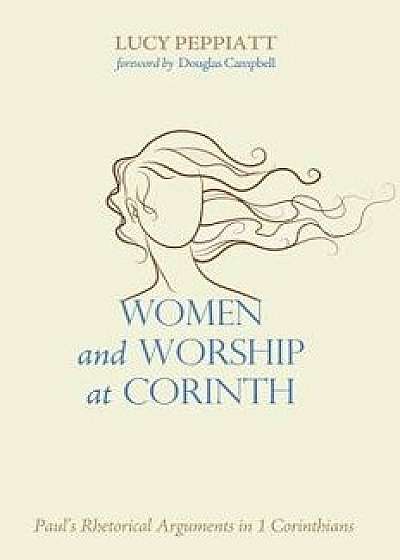
Women and Worship at Corinth: Paul's Rhetorical Arguments in 1 Corinthians, Paperback/Lucy Peppiatt
Descriere
Description Making sense of Paul's arguments in 1 Corinthians 11-14 regarding both the role of women in public worship and the value of tongues and prophecy for the unbeliever has long posed challenges for any lay reader or scholar. Despite numerous explanations offered over the years, these passages remain marked by inconsistencies, contradictions, and puzzles. Lucy Peppiatt offers a reading of 1 Corinthians 11-14 in which she proposes that Paul is in conversation with the Corinthian male leadership regarding their domineering, superior, and selfish practices, including coercing the women to wear head coverings, lording it over the "have-nots" at the Lord's Supper, speaking in tongues all at once, and ordering married women to keep quiet in church. Through careful exegesis and theological comment this reading not only brings internal coherence to the text, but paints a picture of the apostle gripped by a vision for a new humanity "in the Lord," resulting in his refusal to compromise with the traditional views of his own society. Instead, as those who should identify with the crucified Christ, he exhorts the Corinthians to make "love" their aim, and thus to restore dignity and honor to women, the outsider, and the poor. "I view Lucy Peppiatt's attempt to reinterpret these texts here . . . as both bold and significant. . . . It is a highly strategic argument and treatment. I expect it to break the broader discussion open in a new and constructive way." --from the foreword by Douglas Campbell "In this book, Peppiatt sheds new and invigorating light on texts in 1 Corinthians that concern the thorny issue of Paul and women. She brings together exegetical skill, theological insight, and a vital concern for the historically contingent nature of Paul's argumentation, to offer a genuinely original and constructive analysis. So often the language of 1 Cor 11: 2-16 and 14: 33-35 proves to be a stumbling block for readers of Paul. Peppiatt, in ways that will inevitably be content





